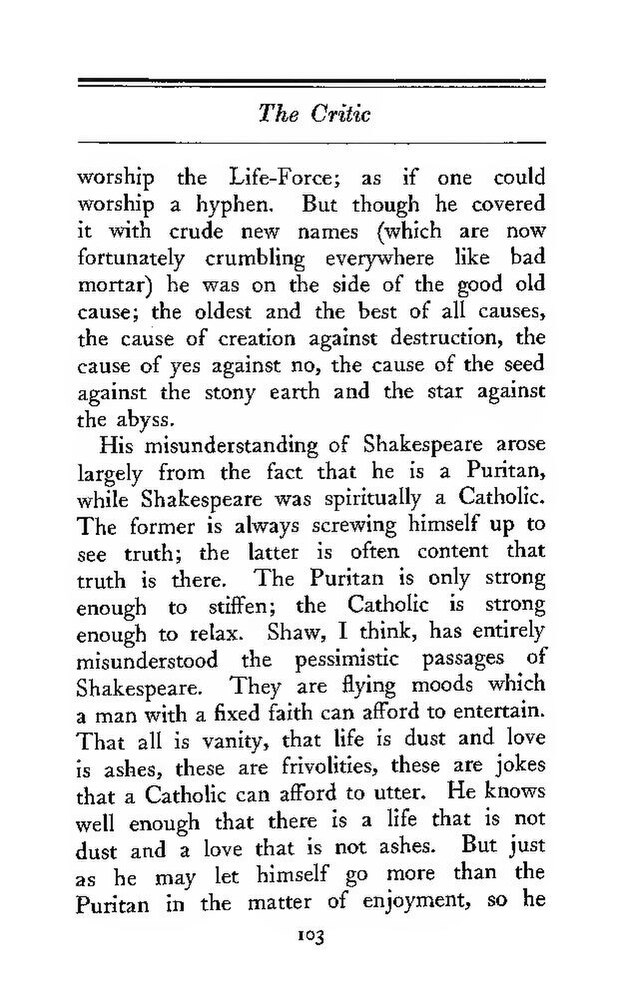worship the Life-Force; as if one could worship a hyphen. But though he covered it with crude new names (which are now fortunately crumbling everywhere like bad mortar) he was on the side of the good old cause; the oldest and the best of all causes, the cause of creation against destruction, the cause of yes against no, the cause of the seed against the stony earth and the star against the abyss.
His misunderstanding of Shakespeare arose largely from the fact that he is a Puritan, while Shakespeare was spiritually a Catholic. The former is always screwing himself up to see truth; the latter is often content that truth is there. The Puritan is only strong enough to stiffen; the Catholic is strong enough to relax. Shaw, I think, has entirely misunderstood the pessimistic passages of Shakespeare. They are flying moods which a man with a fixed faith can afford to entertain. That all is vanity, that life is dust and love is ashes, these are frivolities, these are jokes that a Catholic can afford to utter. He knows well enough that there is a life that is not dust and a love that is not ashes. But just as he may let himself go more than the Puritan in the matter of enjoyment, so he
103
